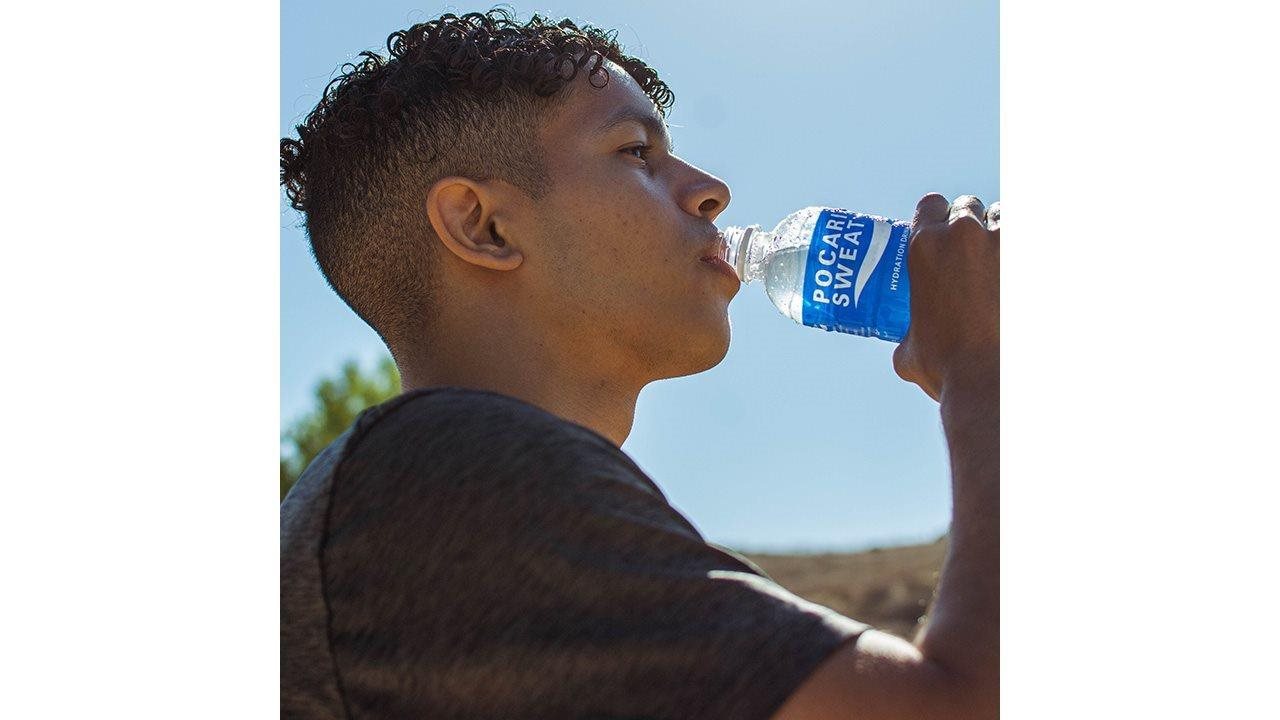Dehydration is more than just feeling thirsty. When your body doesn't get enough water to replenish the fluid it uses to function, it can experience more serious medical problems. This is especially true for "high heat" workers like firefighters, steel mill workers, police officers and construction workers who regularly work in high temperatures while performing physical tasks.
According to family and sports medicine physician Dr. Robert Sallis, dehydration affects the body in multiple ways — from fatigue to impairing muscle performance. He says that replacing electrolytes such as sodium, potassium and magnesium is important for anyone sweating heavily, as it helps sustain endurance and prevents the debilitating symptoms of dehydration.
Sallis also emphasizes that even mild levels of dehydration can impair concentration, reaction time and decision-making for both professional and occupational athletes, such as roadworkers, delivery drivers and more. While impaired performance due to dehydration in a sports competition might result in losing a game, workplace errors in high-risk environments carry far more serious consequences. Whether on the playing field or in the workplace, the same lessons apply: Hydration is a low-cost, high-impact lever for optimal health and performance, helping to keep you sharp and effective.
According to a recent survey of high-heat workers in Texas and California conducted by We Are Talker on behalf of Pocari Sweat, 33% of workers have had to stop working due to dehydration. Among firefighters and roofers, this number jumps to 71%. For high-heat professionals, staying properly hydrated is critical to their safety and the safety of others.
With summer approaching, it's critical that these workers know the signs of dehydration.
1. Thirst and dry mouth
Dehydration doesn't always start with dramatic symptoms. Often, it begins with subtle signs like a dry mouth or feeling thirsty. While thirst is the most common symptom, your body may also signal low fluid levels through changes in your bathroom habits. If you're urinating less than usual or notice your urine is darker and stronger-smelling, it's time to hydrate.
2. Weakness and fatigue
It's normal to feel tired on the job, especially during a long, taxing summer workday. However, if you're feeling more tired or weaker than usual, you may be experiencing dehydration-related fatigue. Without sufficient hydration, both your brain and muscles have less fluid than needed to function optimally, which can lead to weakness and fatigue.
3. Headaches
Feeling lightheaded? Is your headache just a headache or a sign of something more serious? If you suffer from frequent headaches or dizziness while on the job, it may be a sign that you're not hydrating enough to keep up with what you're sweating out. As dehydration worsens, brain tissue will lose water as well and slightly shrink, which can produce a dull headache that worsens with moving your head.
4. Low blood pressure and dizziness
When you're dehydrated, the volume of blood in your body drops, lowering your blood pressure. Low blood pressure means that you're likely not getting enough blood flow to your brain. As a result, you may feel lightheaded, dizzy and — in severe cases of dehydration — can pass out.
Science-driven approaches to hydration and heat resilience
Workers in high-heat situations can help prevent these symptoms of dehydration by diligently hydrating during the workday. However, what you use to hydrate is just as important as how often you do. Because you lose essential electrolytes in sweat and burn carbohydrates while active, you need a beverage that can help your body replace these key minerals and supply carbohydrates to working muscles.
This scientifically formulated hydration beverage reflects the body's natural fluid composition, enabling faster and more effective hydration compared to water alone.
Not only does Pocari Sweat hydrate you quickly, but it can also help you stay hydrated longer. According to clinical trials, those who drank Pocari Sweat retained significantly more fluid two hours after drinking compared to plain water.
Through years of research, Otsuka discovered that the best drink to combat dehydration is one that replaces essential electrolytes lost in sweat, such as sodium, potassium and magnesium, along with a small amount of carbohydrates to speed absorption. The company formulated Pocari Sweat to give your body everything it loses when you sweat.
Proper hydration is vital to beating the heat this summer, but the survey findings also uncovered other popular ways to avoid the impacts of high heat. Respondents shared staying in air-conditioned environments as much as possible (51%), finding shade when working outdoors (38%), and working near fans or open windows (38%) as tactics for staying cool on the job.
Your body needs more than water to stay protected when working in high heat. Knowing the signs of dehydration and staying ahead of them by regularly drinking a scientifically formulated beverage can help keep you safe and effective on the job. To learn more about how Pocari Sweat can help you perform your best this summer, visit TryPocari.com.



